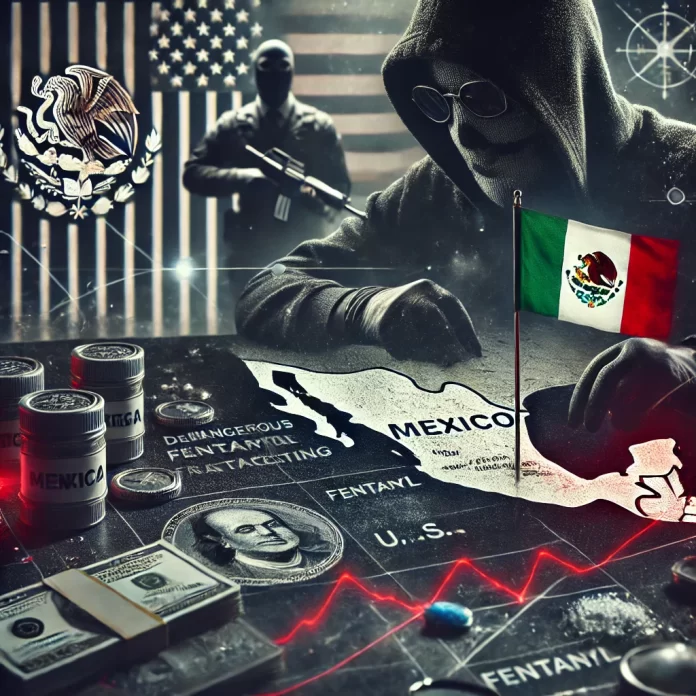The United States has taken strong action against key members of a Juarez cartel that is actively involved in smuggling fentanyl and other dangerous drugs into the country. On Thursday, the U.S. Department of the Treasury imposed sanctions on several senior members of the armed wing of La Linea, a violent drug trafficking group that works on behalf of the notorious Juarez Cartel. This organization operates across the U.S.-Mexico border, particularly in the region around Chihuahua, Mexico.
This recent round of sanctions targeted five Mexican citizens and two businesses with ties to La Linea. By imposing economic restrictions, the U.S. aims to cut off the financial resources that these individuals and companies use to support their drug trafficking activities. This move is especially focused on stopping the flow of fentanyl into the U.S. Fentanyl is a powerful opioid that is currently one of the deadliest drugs in America, and its effects have been devastating across the nation.
The Juarez Cartel and Its Trafficking Routes
Fentanyl, known for its extreme potency, has caused a significant increase in overdose deaths in the U.S. in recent years. According to the Centers for Disease Control and Prevention (CDC), drug overdose deaths have increased more than sevenfold from 2015 to 2021. However, the CDC recently reported a slight 3% decrease in overdose deaths this year. Despite this small improvement, the crisis remains a serious public health concern.
The Drug Enforcement Administration (DEA) has identified Mexico and China as the primary sources of fentanyl and fentanyl-related substances entering the U.S. Most of the chemicals used to manufacture fentanyl come from China, and Mexican drug cartels like Juarez Cartel play a key role in producing the drug and transporting it into the U.S. In particular, La Linea and the Juarez Cartel, which are known for their violent tactics, are responsible for a significant portion of the fentanyl entering the U.S. These groups have inflicted widespread violence in Mexico, affecting innocent people and drawing attention from international authorities.
Over the past two years, the U.S. Treasury Department has ramped up its efforts against drug trafficking networks. More than 350 people and companies involved in the production, transport, and distribution of illicit drugs have faced sanctions. These sanctions are part of a larger strategy to restrict the resources and funding that enable these organizations to operate. Through these efforts, the U.S. is sending a message that it will continue to target those responsible for the fentanyl crisis affecting American communities.
Strengthening U.S. Actions Against Drug Trafficking
In addition to sanctions, the Biden administration has introduced several other measures to combat fentanyl trafficking and its devastating effects. In December 2023, Treasury Secretary Janet Yellen launched the Counter-Fentanyl Strike Force. This new team brings together experts and intelligence from across the Treasury Department, including its sanctions division, intelligence agencies, and IRS Criminal Investigations. By coordinating efforts, the Strike Force aims to more effectively prevent drugs like fentanyl from entering the U.S. Actions against Juarez Cartel are the part of the work of this team.
President Joe Biden has also made fentanyl trafficking a top priority, recognizing its impact on American families and communities. In April, he signed the bipartisan FEND Off Fentanyl Act as part of a supplemental spending package. This act officially declares the international trafficking of fentanyl a national emergency, which allows the government to mobilize more resources to combat the crisis. These actions against Juarez Cartel signal that the U.S. government is serious about using every tool available to stop fentanyl smuggling.
The political landscape in the U.S. has seen an increase in focus on the fentanyl crisis, especially with upcoming elections. Some political leaders argue that fentanyl smuggling across the U.S.-Mexico border should be viewed as a national security issue tied to immigration. This view has been highlighted in political debates and campaign discussions, where some candidates link drug trafficking to migration patterns. However, federal data shows that most people caught smuggling fentanyl are U.S. citizens, complicating the conversation and raising questions about the best ways to address the crisis.
As part of these combined efforts, the U.S. is determined to dismantle drug trafficking networks like Juarez Cartel and reduce the flow of fentanyl into the country. This battle against fentanyl and other dangerous drugs continues to be a priority for the government, as it seeks to protect public health and safety from the devastating impact of drug abuse.


